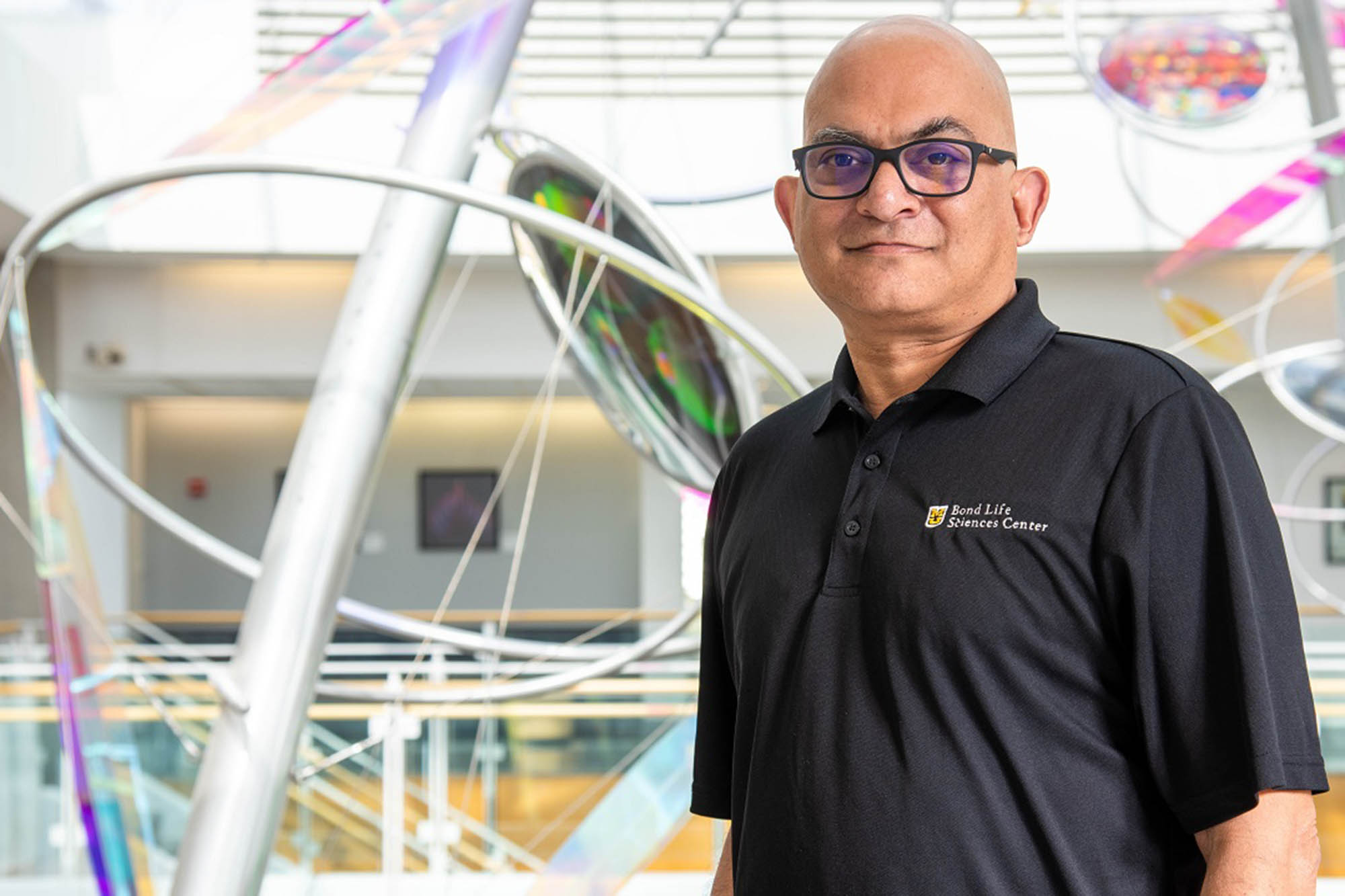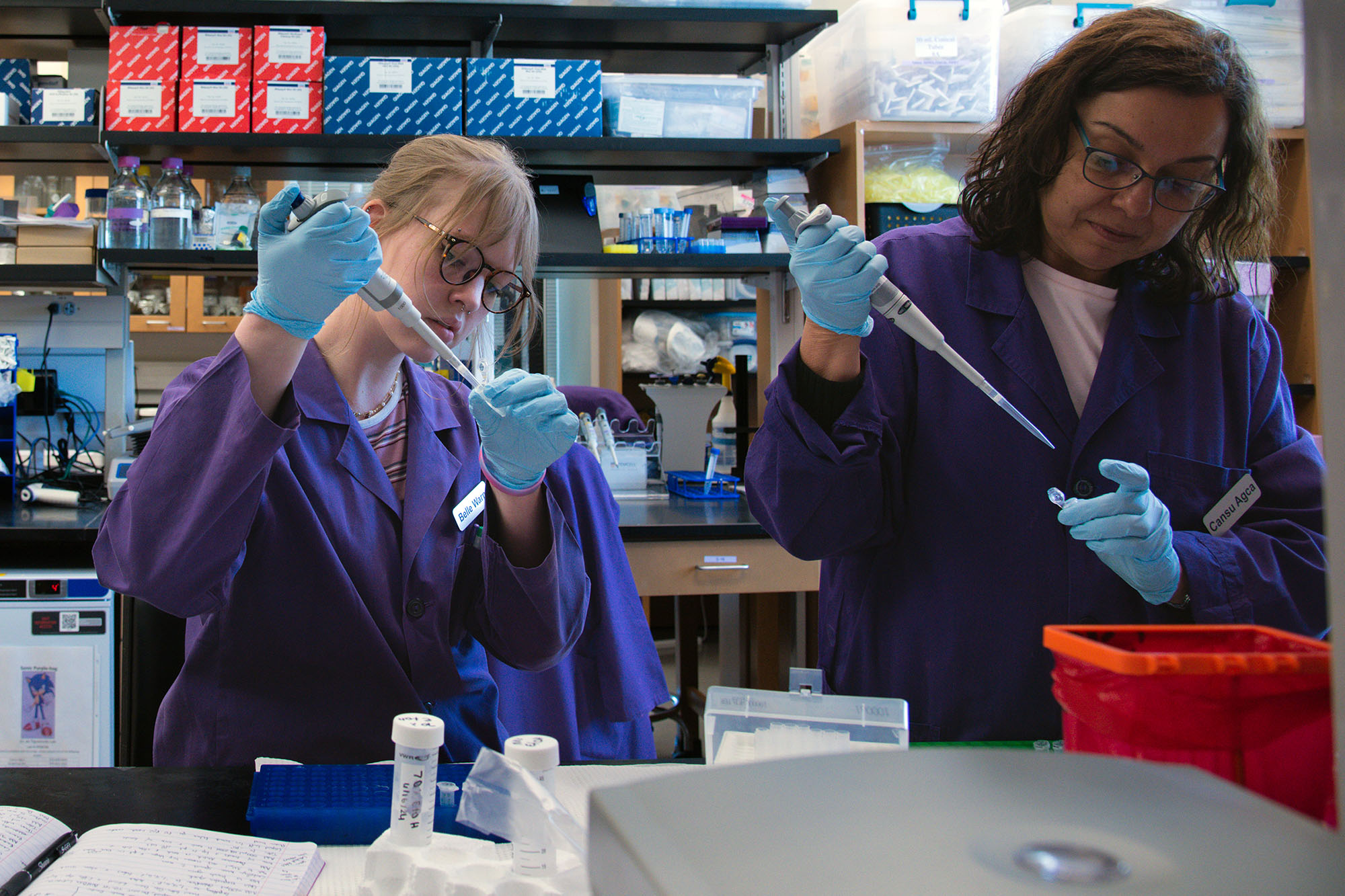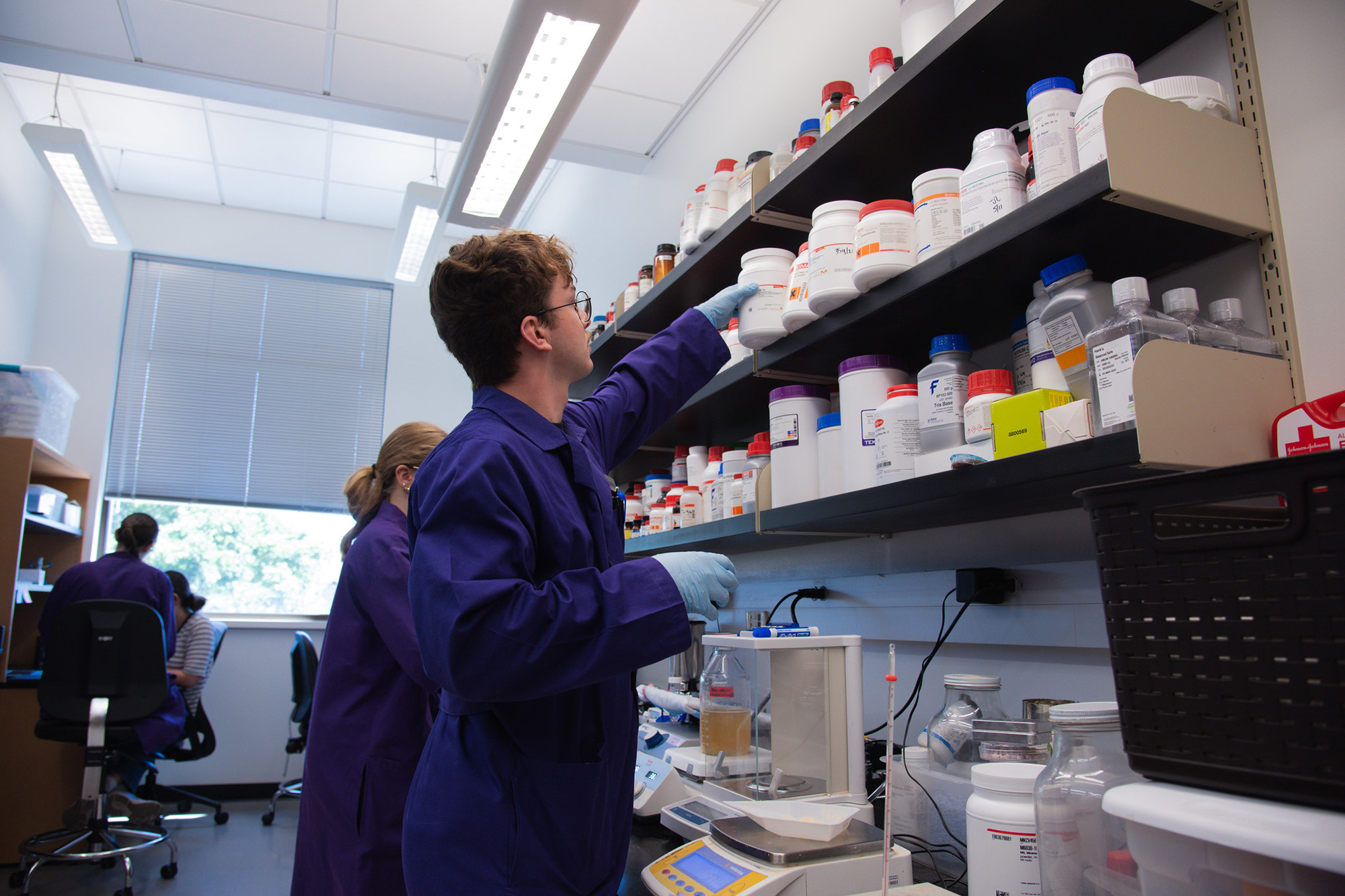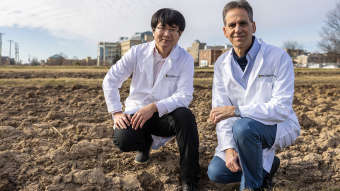Oct. 29, 2024
Contact: Janese Heavin, heavinj@missouri.edu
Understanding microorganisms such as bacteria and viruses is key to protecting human health — especially as experts predict new infectious diseases will continue to emerge worldwide in the coming years.
But safely transporting samples of these microbes to labs for testing remains a challenge.
That’s where University of Missouri Professor Paul de Figueiredo, his team and collaborators come in. De Figueiredo recently received more than $3.5 million as part of a nearly $12.9 million contract from the Defense Advanced Research Projects Agency (DARPA) to develop a method to preserve microbial samples during transport.
“Many vaccines are made from microorganisms that have the power to protect us, but they need to be safely distributed across the globe,” said de Figueiredo, a professor of molecular microbiology and immunology in the MU School of Medicine with appointments at Mizzou’s Bond Life Sciences Center and the NextGen Precision Health initiative. “One challenge is that we don’t always have access to high-end preservation technology like refrigeration to transport microorganisms. Another challenge is that the samples could be traveling long distances and from extreme environments. And the organisms we’re trying to preserve aren’t always well understood, so we need a universal solution.”
De Figueiredo is co-leading the DARPA-funded project — known as “A Microbial System To Ameliorate Survival in Extreme Settings,” or μSTASIS — alongside Professor Arum Han from Texas A&M, where he worked before coming to Mizzou.
While transporting microbes has long been a challenge, this is the first concerted effort to find a solution, de Figueiredo said, adding the need to transport and preserve viruses to speed up interventions became evident during the COVID-19 pandemic.
While the work is in the early stages, de Figueiredo’s lab supports a team working on advancing a variety of ideas and solutions. One approach, he said, could be developing a chemical mixture to preserve microorganisms in vials.
Far-reaching applications
If successful, the potential impact of this work could extend far beyond health protection. For example, the method of preserving and transporting microbes could also help farmers send soil samples with live organisms to labs or to other farms. The food industry, which relies on fungi such as yeast for fermentation, could also benefit from a more reliable transport system.
The work bolsters cancer research in de Figueiredo’s lab, too. He’s currently leading a team working on genetically engineering microorganisms for therapeutic use, and preservation and transport are crucial as these therapies progress through animal and human trials.
De Figueiredo’s research — supported with $20 million from the Advanced Research Projects Agency for Health (ARPA-H) — extends into other areas. He and his group are also studying treatments for Type 1 diabetes and other autoimmune diseases and neurodegenerative diseases such as ALS and Alzheimer’s.
And recently, he secured additional funding to explore the potential for a single, lifetime immunization against viruses, including the flu and COVID-19. He received ARPA-H funding to use computational methods such as artificial intelligence and computer modeling to analyze data from related experiments.
“Researchers and agencies are collecting a gigantic amount of data using different systems, and they’re sending that data to Mizzou, where we’re inputting and analyzing it,” he said.
In addition to Professor Byung-Jun Yoon from Texas A&M, de Figueiredo is collaborating with researchers across the country on the ARPA-H project.
“With the resources on campus, including NextGen Precision Health and the Bond Life Sciences Center, we’re well-positioned to partner with leading labs in the country to tackle some of the biggest challenges in health and science,” said de Figueiredo, a MizzouForward hire. “It’s an exciting time for research and discovery, and it’s an exciting time to be at Mizzou.”






